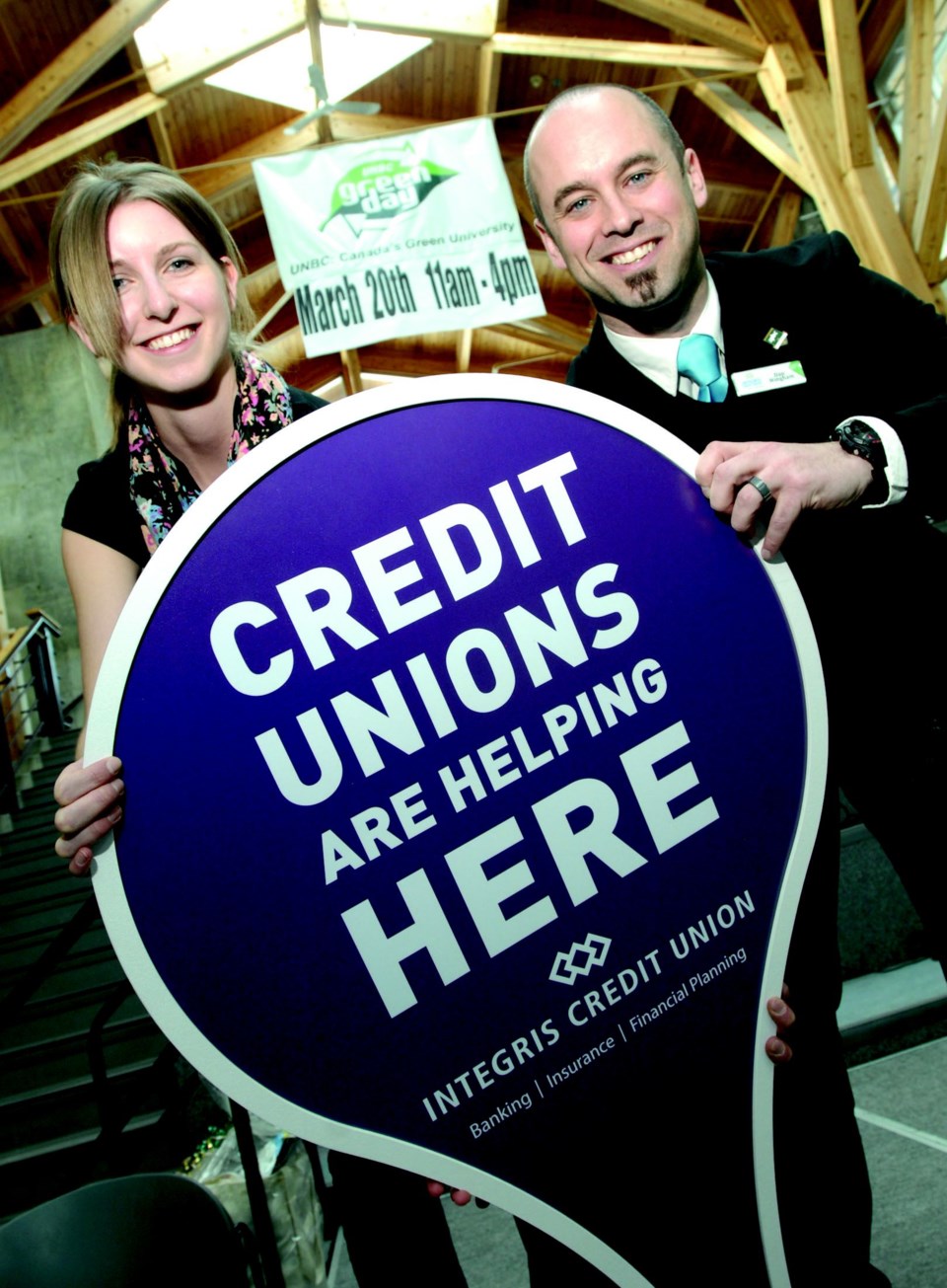Talia Miller knows all about cold-water clothes washing.
Her grandparents on Galiano Island near Vancouver taught her well.
Not only can making the switch from hot water to cold in washing machines save money, but as Miller found out this week, it can bring in some cold hard cash.
The 18-year-old English major from Fort St. John won the $1,000 grand prize donated by Integris Credit Union in UNBC's Facebook Green Day contest for her idea to turn off the hot water taps that feed into the student residence washing machines.
"Heating takes up so much extra energy," said Miller. "Most loads don't even need warm water to clean. I use cold water for all of my laundry anyway. Some [greasy] loads you might need hot water to get clean but for most loads can be washed in cold. I can't imagine anybody on campus having really dirty loads.
"The people on residence I did talk to seemed to think it was a good idea. They just have to turn off the hot water tap. My grandparents have started doing it and noticed a huge difference. It's a very green-oriented island where they live and they've made lots of changes to reduce energy consumption."
Miller pointed out that 90 per cent of the energy a washing machine consumes is used to heat water. She's hoping other students and instructors who live off campus will follow the lead of the residence and stop using hot water for clothes washing. She said they can also save energy by not having showers too hot and reducing the heat for washing dishes.
An aspiring English teacher, Miller just started her university program in January and has heard about some of the campus projects to reduce dependency on fossil fuels. UNBC started taking advantage of biomass heat in June 2009, when it opened a wood pellet-burning plant to heat the forestry lab. The main components of UNBC's $22-million bioenergy heating project began operating in March 2011, providing 85 per cent of the heat the campus needs.
"I really think they are looking towards making it as green as possible and it's actually really cool to see the things they've come up with so far," said Miller. "The student body got behind everything in the Green Day contest and they have a borrow-a-mug program to keep students from buying coffee in paper cups."
The two-week Facebook contest attracted 59 entries. Ried McTavish came up with an idea to reduce paper useage on campus that would require professors to accept assignments on double-sided paper or digital copies. It also proposed a ban on posters for student council candidates during election campaigns. McTavish's second-place entry drew 90 votes, five less than Miller.
Rachel Slykhuis earned 80 votes for her plan to encourage use of reusable coffee cups and a ban on Tim Hortons' Roll-Up-The-Rim paper cups. Taspia Raka proposed an on-campus human waste treatment facility to harness biogas and convert it into electricity. Caleb Miller also made the top-five for his idea to have the UNBC bookstore offer textbooks in digital form at reduced prices. The bookstore could also allow students to rent electronic reading devices to allow access to the digital textbooks. The top five vote-getters all received gift baskets.



